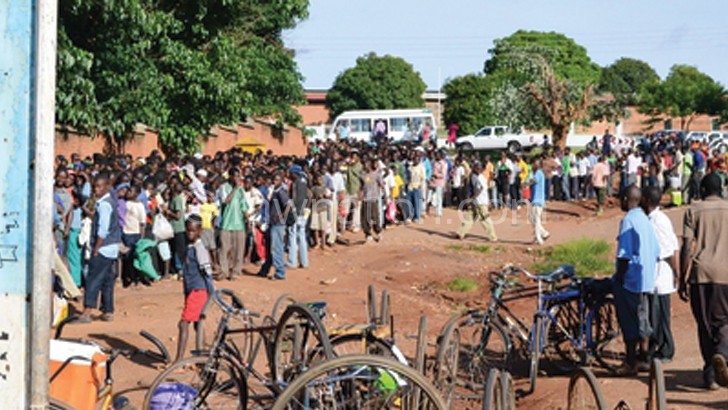Stop politicising maize—EU
The European Union Ambassador Marchel Gerrmann has advised the government to stop politicising production and marketing of maize by minimising its intervention.
He observed that many commercial farmers stopped growing maize because the prices on the market cannot cover the costs of production.
Said Germann: “For many commercial farmers, the current maize price is too low because production costs are much higher than what the crop fetches when sold.”

He added that if government wants big farmers to produce maize, it should make the crop attractive since farmers cannot be expected to produce maize at a high cost against low selling prices.
He advised government to start rethinking its maize market approach to make its price more predictable and less volatile, and in particular, reduce its interventions on the market.
“I believe increased production of maize, among other crops, is most important to the well-being of the country,” said Germann.
In agreement, Cisanet national coordinator Tamani Nkhono-Mvula said such is the case because the crop is widely grown and consumed by the majority of the people who are voters.
“This is also coupled with the fact that most of the people who entirely depend on maize are poor and at times they struggle to get maize for food and rely on handouts,” he said.
Added Nkhono-Mvula: “This has provided a fertile ground for the politicisation of food (maize) to the extent that almost every government in the multiparty era has been elected based on its promise to guarantee the availability of maize.”
He added: “As civil society, we drafted the food security bill which, among other things, is trying to criminalise distribution of maize at political rallies or using food to buy political or sexual favours. Our understanding is that people have the right to food and that it has to be obtained in a dignified manner.”
He observed that maize is no longer being grown on a massive scale because the returns on investment are usually very low.
Said Nkhono-Mvula: “One of the reasons for this is that most of maize grown in Malawi is grown for consumption with very little value addition. This challenge is also coupled with the fact there has been an export ban on maize, making formal exports of maize difficult.
“These export bans are at times done with good intentions but one of their effects is the collapse of the commercial maize sector.”
Farmers Union of Malawi (FUM) executive director Chris Kapondamgaga concurred that the ban on maize exports has put off medium and large-scale farmers due to the low returns from the local market.
“No bank in the country would give a loan to a private farmer who would like to engage in maize growing business because they know it fetches low prices,” said Kapondamgaga.
He observed that if government allowed farmers to grow maize without interference on maize pricing, production would increase and Malawi could record a surplus.
But Minister of Agriculture and Water Development Allan Chiyembekeza said overpricing maize could run the country into serious problems as people may not afford to buy the commodity. He also noted that maize prices determine the country’s inflation.
“We really have to look at how much a farmer in this country would pay for a kilogramme of maize and look at the economic status of this country,” said Chiyembekeza.
As such, he said, government would continue to dictate the price of maize.
But he added that if companies would like to grow maize, they are free to do so and government would not interfere with them.
Most of the maize in Malawi is produced by smallholder farmers, largely for for consumption. Most commercial farmers produce tobacco and tea.
Malawi needs 2.1 million metric tonnes of maize for local consumption, but the 2015 Malawi Vulnerability Assessment Committee (Mvac) report released in August showed a 30.2 percent drop in maize output, resulting in a deficit of 223 723 metric tonnes largely due to the combined effects of floods and drought.
In September, Famine Early Warning System Network (Fewsnet) warned that average national maize prices would rise by 55 percent between October and December. n





